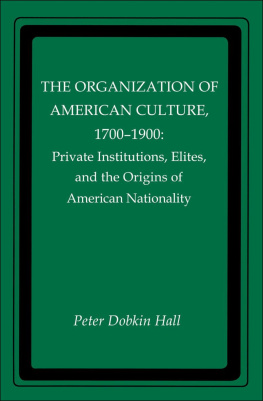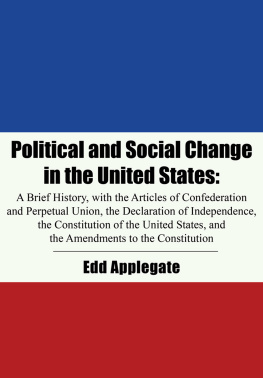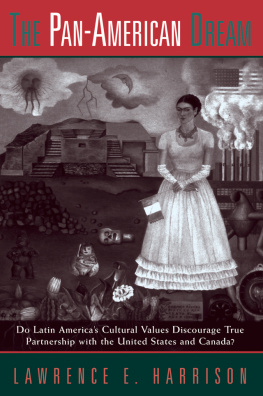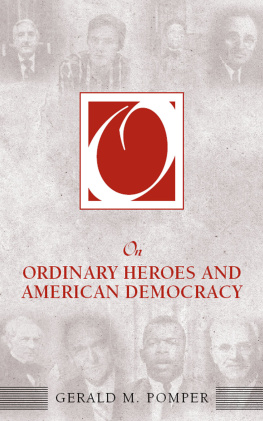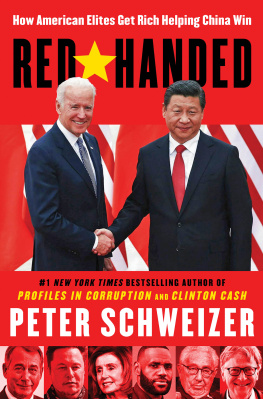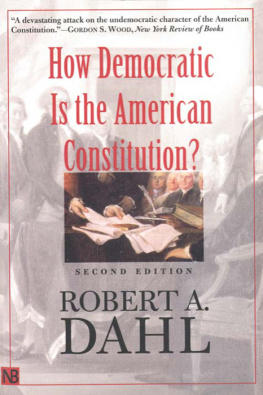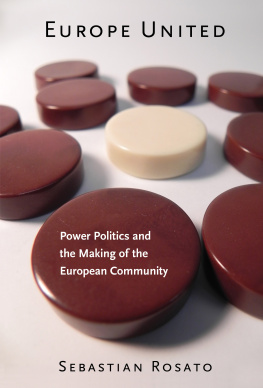Peter D. Hall - The Organization of American Culture, 1700-1900: Private Institutions, Elites, and the Origins of American Nationality
Here you can read online Peter D. Hall - The Organization of American Culture, 1700-1900: Private Institutions, Elites, and the Origins of American Nationality full text of the book (entire story) in english for free. Download pdf and epub, get meaning, cover and reviews about this ebook. year: 1984, publisher: NYU Press, genre: Politics. Description of the work, (preface) as well as reviews are available. Best literature library LitArk.com created for fans of good reading and offers a wide selection of genres:
Romance novel
Science fiction
Adventure
Detective
Science
History
Home and family
Prose
Art
Politics
Computer
Non-fiction
Religion
Business
Children
Humor
Choose a favorite category and find really read worthwhile books. Enjoy immersion in the world of imagination, feel the emotions of the characters or learn something new for yourself, make an fascinating discovery.
- Book:The Organization of American Culture, 1700-1900: Private Institutions, Elites, and the Origins of American Nationality
- Author:
- Publisher:NYU Press
- Genre:
- Year:1984
- Rating:3 / 5
- Favourites:Add to favourites
- Your mark:
The Organization of American Culture, 1700-1900: Private Institutions, Elites, and the Origins of American Nationality: summary, description and annotation
We offer to read an annotation, description, summary or preface (depends on what the author of the book "The Organization of American Culture, 1700-1900: Private Institutions, Elites, and the Origins of American Nationality" wrote himself). If you haven't found the necessary information about the book — write in the comments, we will try to find it.
Nationality, argues Peter Hall, did not follow directly from the colonists declatation of independence from England, nor from the political union of the states under the Constitution of 1789. It was, rather, the product of organizations which socialized individuals to a national outlook. These institutions were the private corportions which Americans used after 1790 to carry on their central activities of production.
The book is in three parts. In the first part the social and economic development of the American colonies is considered. In New England, population growth led to the breakdown of community - and the migration of people to both the cities and the frontier. New Englands merchants and professional tried to maintain community leadership in the context of capitalism and democracy and developed a remarkable dependence on pricate corporations and the eleemosynary trust, devices that enabled them to exert influence disproportionate to their numbers. Part two looks at the problem of order and authority after 1790. Tracing the role of such New England-influenced corporate institutions as colleges, religious bodies, professional societeis, and businesses, Hall shows how their promoters sought to civilize the increasingly diverse and dispersed American people. With Jeffersons triumph in 1800. these institutions turned to new means of engineering consent, evangelical religion, moral fegorm, and education. The third part of this volume examines the fruition a=of these corporatist efforts. The author looks at the Civil War as a problem in large-scale organization, and the pre- and post-war emergence of a national administrative elite and national institutions of business and culture. Hall concludes with an evaluation of the organizational components of nationality and a consideration of the precedent that the past sets for the creation of internationality.
Peter D. Hall: author's other books
Who wrote The Organization of American Culture, 1700-1900: Private Institutions, Elites, and the Origins of American Nationality? Find out the surname, the name of the author of the book and a list of all author's works by series.

